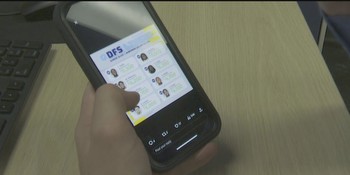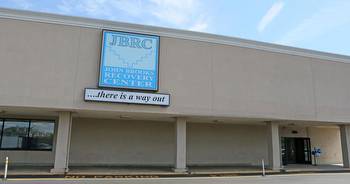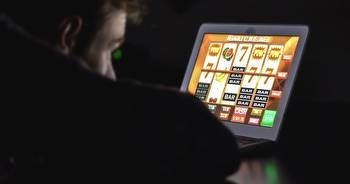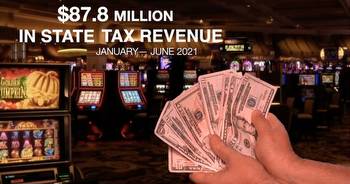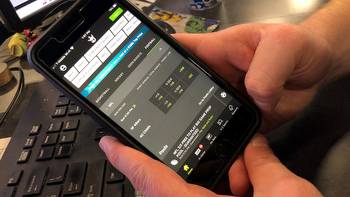Calls to Michigan gambling helpline doubled after online gaming launched

LANSING — Online gambling and sports betting celebrated a big launch in late January.
The Michigan Gaming Control Board announced operators had collected $42.7 million in gross receipts in the first 10 days Michiganders were allowed to place bets from home.
The next month, calls to the Michigan Problem Gambling Helpline spiked. There were 563 gambling addiction calls placed to the helpline in February,
Online gambling is the likely culprit of that growth, said Michelle Malkin,a Ph.D. candidate studying problem gambling at Michigan State University's school of justice.
"Casinos are at limited capacity right now because of the pandemic," she said. "The only thing that could really[explain] thisis the growth of online gambling. Because that's really the only big change that's happened in Michigan."
Gov. Gretchen Whitmer signed legislation legalizing online gambling in late 2019. The bills had bipartisan support.
Online gaming took off as soon as it was opened in January this year. Operators collected almost $260 million in gross receipts from January through March, according to the Michigan Gaming Control Board. They paid more than $36 million in taxes that go to local and state funds that pay for internet gaming law enforcement, problem gambling prevention, a fund for first responders and more.
In the year the bill was signed, calls to the Michigan gambling helpline hovered between 100 and 300 a month, according to information provided by the Michigan Department of Health and Human Services. They spiked above 500 in February, the first full month after online gaming opened. They remained high in March, the latest month data was available.
Michigan residents who call the helpline, available 24/7 at 1-800-270-7117, can connect with counselors and treatment providers and learn about the signs of problem gambling and prevention techniques.
For every call to the help line, there are likely 10 people dealing with a gambling addiction, said Jim Loree, a mental health and addictions therapist at the Lansing Institute of Behavioral Medicine.
Gambling addictions are insidious, Loree said. People chasing the high of a big win can end up in serious debt before they or anyone else realize they have an addiction.
"The real problem with gambling addiction is when somebody gambles for the first or second or third time and they win really big," he said. "Then they get in their mind that they won once, they can win again. And the truth is they can win again.
"The problem is, we're talking about probability. The probability is they won't win again or they won't win frequently enough to make up for the losses. Hence why so many venues for gambling are still around."
Michigan's gambling industry underwent big changes in the last year with the advent of legal online gambling and the coronavirus pandemic.
A lot of the advice problem gambling prevention specialists used to give — like 'avoid going alone' or 'play with a specific amount of cash, not your credit card' — doesn't apply anymore, said Alia Lucas, MDHHS Gambling Disorder Program specialist.
"With the changing landscape and accessibility to gambling, the concern now is that an individual can sit at home on their couch with their phone and gamble to their heart's content," she said.
The state's Gambling Disorder Program is working on increasing the public awareness of gambling disorders and treatment, and searching for ways to reach younger people.
The helpline canconnect people with the state's disassociated persons list, which allows people to sign themselves up for a five-year or lifetime ban from Detroit casinos. There's also an online version — theinternet gambling responsible gaming database — which allows people to ban themselves from online gaming platforms or limit the amount they can play with each day.
The state prevention program has more money to work with thanks to online gambling and sports betting, which send a combined $1 million a year to the Compulsive Gaming Prevention Fund. That turned the fund's roughly $4 million annual budget into $5 million, Lucas said.
"We're not anti-gambling," Lucas said. "There are a ton of people who can gamble and have a good time without it compromising their lives, but we want to make sure individuals are aware of the circumstances when there can be problems and what to do in the event that those issues present themselves."
Someone who lies about how often they gamble or bets with money that is supposed to be used for tuition, bills, food or gas might have a problem, she said.
"It's kind of a circular thing," Malkin said. "People who have a problem with gambling end up causing a wall of debt, and unfortunately when you're a problem gambler, you think the way you can fix that is the next big win. You're trying to fix your addiction through continuing your addiction."
Malkin, who researches gambling addiction, said it's a relatively new field of study. Legalized gambling expanded rapidly in the last 20 years and now is widely available in the U.S.
"The biggest expansion has been through the internet," she said. "And each time there’s an expansion they're getting a new crowd of people with the potential to end up being a problem gambler."
Malkin said Michigan should do more to educate people, particularly young people and parents, about problem gambling.
"If anybody's watching TV these days they're inundated with commercials about all the different ways to access online gambling," Malkin said. "You're not seeing an equal number of things about what to do if you have a problem."
The Michigan Problem Gambling Helpline is available at 1-800-270-7117. Counselors provide free, confidential service 24/7.










